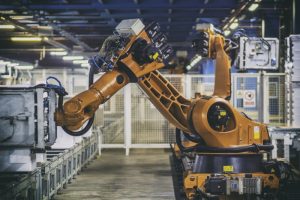 With all the technology advancements and innovative trends driving Industry 4.0 right now, you might expect geeky topics like the Internet of Things (IoT) or artificial intelligence (AI) to be the hottest topics of discussion among industry leaders. Instead, many leaders are still more focused on workplace culture. And here’s why: Manufacturers live in an industry of transformation, and effective transformation must start with culture.
With all the technology advancements and innovative trends driving Industry 4.0 right now, you might expect geeky topics like the Internet of Things (IoT) or artificial intelligence (AI) to be the hottest topics of discussion among industry leaders. Instead, many leaders are still more focused on workplace culture. And here’s why: Manufacturers live in an industry of transformation, and effective transformation must start with culture.
Facebook vs. manufacturers
Mark Zuckerberg’s philosophy of "move fast and break things" has different implications when you're a manufacturer. Even for digital natives like Amazon and Uber, the impact of a missed consumer shipment or car booking pales in comparison to the impact of a missed supplier delivery that could impose penalties and jeopardize a manufacturer’s livelihood.
Think about how the culture of move fast and break things compares to a culture symbolically represented by the Gartner Supply Chain Conference. The Gartner Supply Chain Conference has effectively represented the state of supply chain for well over a decade. It's where supply chain executives go to network, learn about the latest innovations and then revisit a similar menu of agenda items from prior years…
- Demand planning
- Supplier management
- Transportation management
- Integrated business planning
- Inventory optimization
The topics will be dressed up with talk of digitization, artificial intelligence, digital twins, etc., but the aims are always the same: How do I speed my delivery times while shrinking my costs to the business? No matter what the buzz, they effectively come back to the same list of topics.
You could chalk it up to a laggard culture, but insiders know supply chain is not easy. Digitization strategies for multi-billion dollar, multi-national companies take years to deploy. In this sense, Gartner Supply Chain serves as a way to hone skills, reflect on the industry and course-correct ongoing initiatives. So while much of the marketing hype focuses on tech innovation, the conference attendees focus much more on the practice and culture of supply chain.
Culture’s role in bridging the IT/OT divide
Another relic of manufacturers stuck in their ways is the IT/OT divide. For those unaware, the manufacturing shop floor is considered somewhat sacred. OT (operational technology), responsible for keeping the production lines running, typically reports to the plant and has a mindset in lock step with production. IT, in contrast, usually reports to corporate and typically focuses on ERP deployments, Microsoft Security Patches, and the like. That sacred manufacturing floor is traditionally OT’s domain. I can also tell you from personal experience that if you ever slip up with an “IT” reference in an OT setting, the OT folks will be quick to correct you.
Steven Meyer from Intel challenged this split in one of his talks at IndustryWeek’s Manufacturing & Technology Conference. He outlined Intel’s radical approach for centralizing OT within their IT organization and didn’t stop there. Meyer also said that blending the production operations mindset with IT’s centralized, standardization methodologies was the pivotal shift in culture that ultimately enabled Intel to scale their digitization strategy.
Please pause your reading to let that sink in.
Yes, Intel, (not known as the most touchy-feely organization) essentially said culture first, technology second in their digitization strategy.
I-KI-GAI!
Sean Suggs’ (President of Toyota Motor Manufacturing in Mississippi) shared a story in his keynote at IndustryWeek’s Manufacturing & Technology Conference that brought the conversation on culture home. Sean started on Toyota’s shop floors and his career was built through Toyota’s commitment to developing leaders from within its workforce. Since he'd personally benefited from Toyota’s culture and had seen this mindset can benefit communities, Toyota’s workforce culture had a deeper meaning for Sean.
Sean challenged the audience to think about Toyota’s model. As a manufacturing leader, instead of asking yourself, “where will I find tomorrow’s leaders?” try shifting the question to “How will I develop tomorrow’s leaders?” Think about the implications for how you will manage your teams and develop you workforce. How would that mind shift impact your culture?
To drive the point further, Sean taught his audience a new concept core to the Toyota way. ‘I-KI-GAI’ is a Japanese word that translates to say, “what’s your purpose?”
The question of purpose is the perfect point of reflection for an industry in the face of transformation.
What’s your purpose?
Change is happening now. If you don’t shift in meaningful ways, your business will be disrupted.
But manufacturing and fulfillment, as industry practitioners have known and as Tesla is now discovering, is hard work. The laws of physics, material science, and logistics don’t always bend so easily. Unlike Facebook, once your product is out in the field you can’t just ‘comment out’ misguided features that could leave your customers exposed.
And beyond physical challenges, manufacturing and fulfillment involve multiple moving parts that require teamwork. As AI and automation are integrated into manufacturing, that doesn’t make it less of a team effort. If done right, AI and automation should raise the level of execution for that team.
The keyword is ‘team.’ At the end of the day, manufacturing is a team sport and a team without purpose won’t win. That's why leading manufacturers today recognize that in an era of unprecedented transformation, culture must come first.
